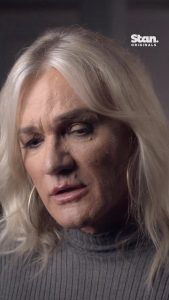The Australian government is facing backlash for designing an education campaign that was meant to raise awareness on consent during sex, but instead turned out to be “problematic” and “bizarre”.
According to a report by The Guardian, rape prevention and sexual education experts are criticising the federal government for creating videos that spread “misinformation”. Notably, Australia’s Department of Education recently launched a programme called ‘Respect Matters’, which contains content to help teach sex and consent to school-age children.
Also read: UN report says millions of women face restrictions on their body
The resources for the programme include 350 videos, podcasts and digital stories but none of them uses the terms ‘sex’, ‘rape’, or ‘assault’. All of the material was shared on The Good Society website, a government-backed platform.
In one of the campaign videos, a girl is scared to swim at the beach because of sharks while her boyfriend tries to convince her. This is supposed to represent her being afraid to have sex due to sexually transmitted diseases (STDs) and pregnancy.
In another video, a teenaged girl smears a milkshake in her boyfriend’s face without his permission, which has been taken by some to represent sexual assault. The video has now been removed.
Also read: Australia government rocked by ‘disgraceful’ parliament sex acts
These metaphors have raised concerns among sex-ed experts and the victims of sexual violence, as per the Guardian report.
Sharna Bremner, director of End Rape on Campus, told the Guardian, that the videos are “bizarre” and “really trivialise an incredibly serious issue”. “This resource doesn’t give young people enough credit.”
Grace Tame, The Australian of the Year and victim of sexual abuse, told ABC TV the video was “so problematic in so many ways”.
The content of the programme has also been mocked on various social media sites. Here are some reactions posted on Twitter:
Meanwhile, Australia’s education department told the Guardian that the content on the website was created by experts and community members. Teachers and school leaders were also consulted to ensure the content was engaging for students, added the department.






